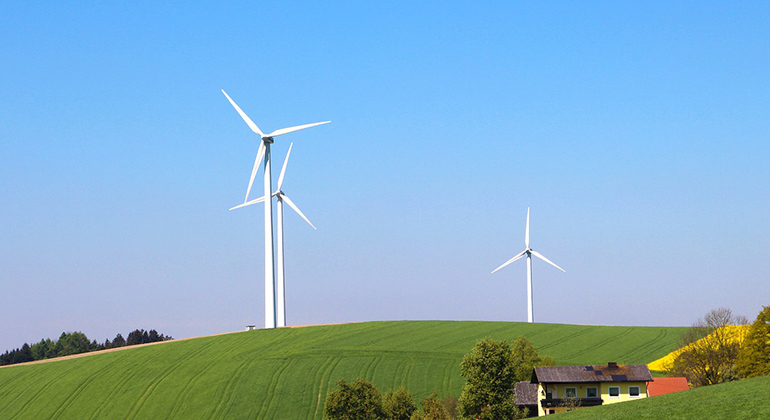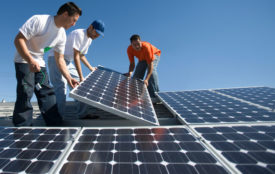A Dangerous Trend is Challenging the Success of Wind Power Around the Globe: Concentration and Monopolisation
Today it seems to be common sense that renewables are understood to be decentralised energy sources, which also bring manifold new benefits.
As renewables need to and can be harvested locally and practically everywhere, people all over the world have the opportunity to benefit from the resulting economic developments. By Stefan Gsänger, Secretary General, World Wind Energy Association, Germany However, in the global wind sector, we see nowadays a trend towards centralisation, in some cases even towards monopolistic structures. This development should be deeply concerning, as it goes hand in hand with less local positive involvement but increasing opposition against wind farms, usually originating from small but very well-organised and even better connected anti-wind groups.
With decentralised structures in place, such centrally controlled opposition would not be much reason to worry about, as in such cases the local population is actively supporting wind farm development as part of their economic well-being. However, with a decreasing number of wind turbine suppliers and in particular a decreasing diversity on the side of wind farm investors, also the number of local investors, including farmers, cooperatives, etc. is diminishing, and with this, there is a lack of local ‘lobbyists’ for wind farms. Everybody in the wind sector should be concerned about this and start to act against it. Unfortunately only limited resistance can be observed.
What has caused the development leading to this situation? The primary reason, let’s be clear, has been the global trend towards support schemes which favour large investors; in particular, auctions have caused such results. Looking at the frightening collapse of the German wind market should already explain why this trend should be stopped. Also in other countries, e.g. in India, the previous diversity among investors, often local entrepreneurs, has vanished, and in the last auction rounds, less than a handful of well-known international corporations have submitted their bids.
Who is benefiting from this trend? There are some global corporations which take advantage of such a centralised market, on the suppliers’ side but also on the investors’ side. For them, life is much easier if they only have to deal with a handful of clients.
However, such monopolistic market structures are not ensuring the rapid growth which the world needs to also keep climate change under control. What we actually need is a broad social mobilisation, a broad movement towards a global 100% renewable energy future. With the new climate change movement, #FridaysForFuture, there is for the first time ever a very broad international movement supporting publicly the shift towards renewables and demanding action. Many of the young people demanding political action are also about to start practical action and could become the local wind farm activists that are so urgently needed.
If we as the wind community want to assume our responsibility and contribute our urgently needed part to climate change mitigation, we must acknowledge that a broad diversity of actors is required and that we need to grow our community and welcome every new person – instead of protecting a small club of a few players.
Accordingly, focusing on diversity, participation and democracy will not only be good for the climate but eventually also for the wind sector as it would result in much higher growth rates, many more jobs and much more turnover than we have today.







